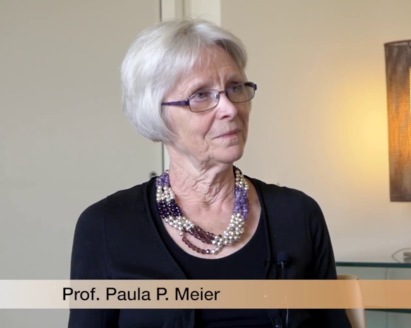The July 2025 special issue of Breastfeeding Medicine marks a major milestone in the field. Edited by Professors Paula Meier and Leslie Parker, it tackles one of the most persistent challenges in maternal-infant health: early, unplanned lactation cessation in both healthy and at-risk dyads.
The authors featured in this issue are part of a multidisciplinary work group, brought together by senior mentors Professors Meier, Parker, Tricia Johnson, and Dr. Rebecca Hoban. The group first met in June 2024, supported by an unrestricted educational grant from Medela. The goals of the meeting were to outline the barriers to the achievement of optimal lactation outcomes during the first 2–4 weeks postpartum and to conceptualize research and clinical priorities in this area.
The collection of research articles featured in this special issue includes: a conceptual framework for understanding and addressing early, unplanned cessation of lactation; an integrative review of point-of-care methods that can be applied in clinical settings to help tackle this issue; alongside five original research articles that deepen the evidence base. An insightful commentary further bridges theory and practice, offering practical guidance for breastfeeding medicine professionals based on the research presented.
Collectively, this edition advances scientific understanding whilst also providing practitioners with practical tools to support breastfeeding more effectively. It is because of this that Medela’s Medical Affairs and Medical Research Departments have provided funding to make this issue open access, so readers do not have to pay to benefit from this groundbreaking research. Looking forward, Medela has provided a second unrestricted education grant so that this multidisciplinary work group can meet in person again to plan their future activities.
The Science Behind Early Milk Production
Many new mothers want to breastfeed but end up stopping much earlier than planned, often within the first 2-4 weeks after birth. This difficult reality affects families whether their baby is healthy and full-term or premature and fighting for life in the NICU. When mothers stop breastfeeding earlier than planned, it affects their entire family’s health and wellbeing as well as public health overall. Now, groundbreaking research using cutting-edge technology is showing us the complexity of the biology of the early postpartum period.
Most current research and healthcare approaches focus on behavioral factors— including maternal perceptions of insufficient milk supply or support from family and friends. While these things matter, they don’t take into account other important reasons why some mothers stop breastfeeding earlier than planned, like physiological or financial challenges. The team of experts authoring the papers in the July special edition of Breastfeeding Medicine propose a new approach that looks at all three areas—biological, behavioral, and economic factors —with a special attention to how often the breasts are stimulated and milk is removed in the early days, which is key to program milk production and keep it going in the long term. This framework provides a great starting point to focus on prevention instead of treatment of early, unplanned cessation of lactation.
Since the most common reason moms stop breastfeeding earlier than they want to is perceived insufficient milk supply, it’s important to improve screening for the initiation of lactation, also known as secretory activation. Better screening can help identify moms and babies who might need extra support early on, and also reassure those whose milk supply is developing well.
The Game-Changing Research
What makes this research in this special issue particularly powerful is how it combines cutting-edge technology with deep understanding of the challenges mothers face. The researchers explore how breastfeeding medicine specialists can use new point-of-care measurements to objectively diagnose delayed or impaired secretory activation. One of the most exciting developments is the use of special probes to measure sodium in breast milk—a simple test that can tell clinicians whether a mother’s milk production is on track.
In particular, this research demonstrates that the first 5 days are crucial for the effective initiation of lactation, timely secretory activation, and achieving a full milk volume, which in turn, influences subsequent long-term lactation outcomes. Creating clear care plans for mothers with lactation risk factors is key to offering better, evidence-based lactation support, intervention, and care.
The research was carried out using state-of-the-art breast pumps specially developed by Medela.[ML1] These smart pumps didn’t just collect data—they enabled personalized, responsive care that adapted to each mother’s unique situation. This combination of smart technology and proven protocols created a support system that improved mothers’ milk supply. For NICUs, this research represents a breakthrough in achieving one of their most important goals: ensuring babies receive adequate mother’s own milk. The Symphony® pump technology and evidence-based protocols consistently improved this critical outcome, benefiting both individual families and hospital performance metrics.
The world’s leading lactation research minds have combined advanced pump technology, evidence-based protocols, and point-of-care testing in such a way that early lactation support is being transformed from guesswork into precision medicine.
The Future of Lactation Support
The future approach to early breastfeeding challenges isn’t just about encouragement—it’s about giving mothers and their healthcare teams the tools they need to succeed from day one:
- Evidence-based protocols that guide optimal pumping behaviors
- Smart pump technology that records individual data
- Precise diagnostic tools that measure sodium biomarkers
- Research-based pumping programs matching the lactation stage of the mother
- Real-time insights that enable proactive intervention
👉 Explore the full issue here: Read the July 2025 Special Issue of Breastfeeding Medicine
Guest Editors:

















